Essay Contest
The Forum on the History of Physics (FHP) of the American Physical Society is proud to announce the 2020 History of Physics Essay Contest.
The contest is designed to promote interest in the history of physics among those not, or not yet, professionally engaged in the subject. Entries can address the work of individual physicists, teams of physicists, physics discoveries, or other appropriate topics. Entries should not exceed 2,500 words, including notes and references. Entries should be both scholarly and generally accessible to scientists and historians.
The contest is intended for undergraduate and graduate students, but is open to anyone without a PhD in either physics or history. Entries with multiple authors will not be accepted. Entries will be judged on originality, clarity, and potential to contribute to the field. Previously published work, or excerpts thereof, will not be accepted. The winning essay will be published as a Back Page in APS News and its author will receive a cash award of $1,000, plus support for travel to an APS annual meeting to deliver a talk based on the essay. The judges may also designate one or more runners-up, with a cash award of $500 each.
Entries will be judged by members of the FHP Executive Committee and are due by September 1, 2020, at 11:59 p.m. US Eastern Time. They should be submitted, as Word documents or PDFs, by emailing fhp@aps.org with “Essay Contest” in the subject line. Entrants should supply their names, institutional affiliations (if any), mail and email addresses, and phone numbers. Winners will be announced by October 1, 2020.
The Essay Contest received a record number of entrants in 2019, with submissions from four continents and essay writers ranging from high school students to graduate students. The winning essay “A Changing Dichotomy: The Conception of the ‘Macroscopic’ and ‘Microscopic’ Worlds in the History of Physics” was submitted by Zhixin Wang, a graduate student in applied physics at Yale University. Wang's essay examines scientists' shifting views on the what distinguishes micro and macro over four centuries, from seventeenth-century hypotheses of hidden mechanical mechanisms as explanations for visible phenomena to more contemporary distinctions where it is not size, but quantum metrics that are often appealed to. This year's runner-up essay "Isabelle Stone: Breaking the Glass Ceiling with Thin Films and Teaching" was submitted by Melia Bonomo, a PhD candidate in applied physics at Rice University. Bonomo's essay charts the career of the largely unknown Stone who, under the supervision of Albert Michelson, became the first American woman to be awarded a physics doctoral degree in 1897 and went on to be a co-founder of the American Physical Society while making significant contributions to multiple schools of higher education that served women. These and other winning essays from previous years can be read below.
2020 Winner
Garrett Williams (University of Illinois)
![]() Winning Essay: “Lewis Latimer: The Shadow Behind the Light Bulb”
Winning Essay: “Lewis Latimer: The Shadow Behind the Light Bulb” ![]()
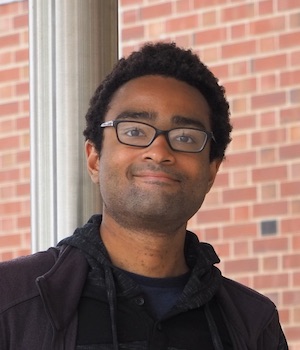
Garrett Williams is a second-year PhD student in Department of Physics and the Illinois Quantum Information Science and Technology (IQUIST) at the University of Illinois at Urbana-Champaign. He completed my B.S. dual-degree in Physics and Chemistry at Baylor University in Waco, Texas. His research is in ultracold atomic physics with the goal of investigating novel states of quantum matter for experimental approaches to quantum computing. He enjoys playing the piano and all kinds of formal writing from research-driven works to musical compositions.
2020 Runner-Up
Hannah Pell
![]() Essay: "The 'Opinion Splitter': How the Superconducting Super Collider Divided American Physicists"
Essay: "The 'Opinion Splitter': How the Superconducting Super Collider Divided American Physicists" ![]()
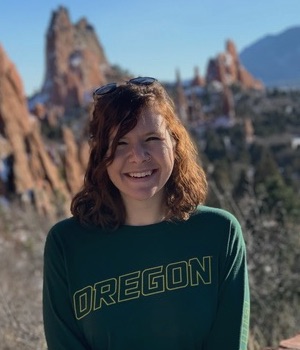
Hannah Pell currently works in science publishing and as a freelance science writer. She is a former Research Assistant for the Center for History of Physics at the American Institute of Physics and an alumna of the Fulbright Program. She earned her B.S. in Physics and B.A. in Music from Lebanon Valley College and her M.A. in Music Theory from the University of Oregon. Her current research interests include science policy and communication with regards to nuclear power, large-scale high energy physics collaborations, and intersections between science and labor history. She has also been appointed to the Citizens Advisory Panel for the Three Mile Island nuclear power plant decommissioning process.
2020 Runner-Up
John Vastola (Vanderbilt University)
![]() Essay: "Who’s Afraid of Max Delbrück?"
Essay: "Who’s Afraid of Max Delbrück?" ![]()
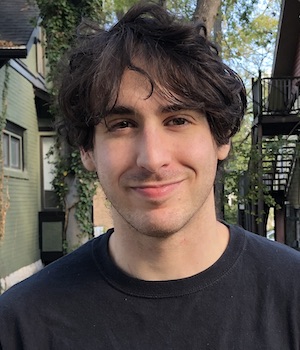
John Vastola is a Ph.D. candidate in the Department of Physics and Astronomy at Vanderbilt University. He currently uses theoretical tools from physics to better understand how individual cells regulate how many proteins and RNA of various kinds they have. More broadly, he is interested in asking and trying to answer questions about nature; for example, how do collections of apparently inanimate atoms conspire to form our friends and family?
2019 Winner
Zhixin Wang (Yale University)
![]() Winning Essay: “A Changing Dichotomy: The Conception of the ‘Macroscopic’ and ‘Microscopic’ Worlds in the History of Physics”
Winning Essay: “A Changing Dichotomy: The Conception of the ‘Macroscopic’ and ‘Microscopic’ Worlds in the History of Physics” ![]()
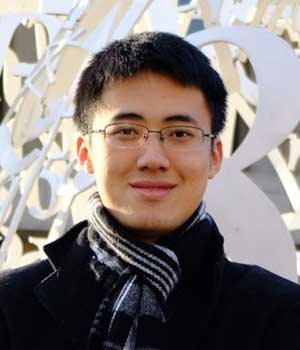
Zhixin Wang is a Ph.D. candidate at the Department of Applied Physics and the Yale Quantum Institute at Yale University. He completed his B.S. in electrical engineering at Tsinghua University in Beijing, and his M.S. and M.Phil. in applied physics at Yale University. His research focuses on the experimental and theoretical study of superconducting quantum circuits, microwave quantum optics, and hybrid quantum systems.
2019 Runner-Up
Melia Bonomo (Rice University)
![]() Essay: "Isabelle Stone: Breaking the Glass Ceiling with Thin Films and Teaching"
Essay: "Isabelle Stone: Breaking the Glass Ceiling with Thin Films and Teaching" ![]()
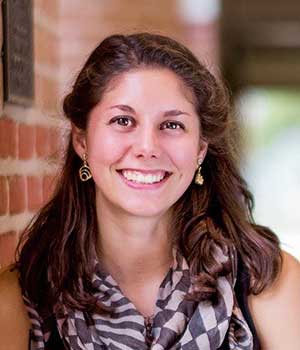
Melia Bonomo is a Ph.D. candidate in applied physics at Rice University in Houston, TX. She completed her B.S. in physics with a minor in Italian at Dickinson College in Carlisle, PA and her M.S. in applied physics at Rice. Prior to graduate school, Melia spent several years teaching high school in Italy. Her current research interest is in theoretical biophysics, with a focus on applications to studying the human brain. She also enjoys investigating the history of physics and obscure scientists, particularly those with underrepresented genders.
2018 Winner
Flavio del Santo (University of Vienna)
![]() Winning Essay: "Striving for Realism, not for Determinism: Historical Misconceptions on Einstein and Bohm."
Winning Essay: "Striving for Realism, not for Determinism: Historical Misconceptions on Einstein and Bohm." ![]()
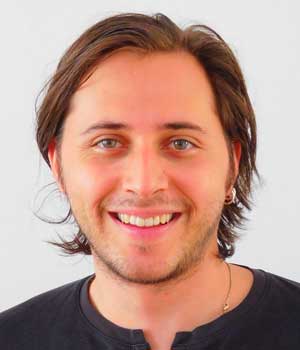
Flavio Del Santo is a Ph.D. student in physics at the University of Vienna and Institute for Quantum Optics and Quantum Information. He completed his Bachelor in Physics and Astrophysics at the University of Florence (Italy) and his Masters in Theoretical Physics at the University of Vienna. His main research interests are the foundations of quantum mechanics, with a focus on the quantum measurement problem. He is also engaged in research activities in the history and philosophy of science.
2018 Runner-up
Grigoris Panoutsopoulos (University of Athens)
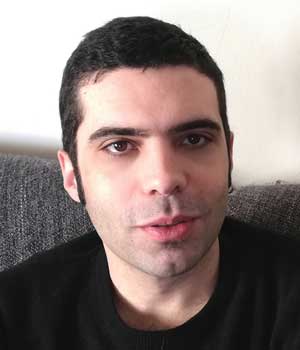
Grigoris Panoutsopoulos is a Ph.D. student at the National and Kapodistrian University of Athens, in the Department of Philosophy and History of Science. He holds a B.Sc. in Physics and a M.A. in History and Philosophy of Science and Technology. His research has focused on the history of CERN, Modern Physics, Big Science, the relationship between theory and experiment and the contemporary crises in the field of High Energy Physics. He has made presentations in international conferences and he has published articles in international journals and edited collections. He is the co-author, of the book Borders, Bodies and Narratives of Crisis in Europe, (Palgrave Macmillan 2018)
2017 Winner
Ryan Chaban
![]() Winning Essay: "Doublet Dudes: Shaping the Future of Fusion"
Winning Essay: "Doublet Dudes: Shaping the Future of Fusion" ![]()
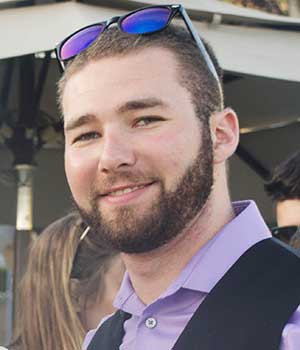
Ryan is a first-year Ph.D. student at The College of William and Mary in Williamsburg, VA. His interest in fusion began through a 2016 Summer Science Undergraduate Laboratory Internship (SULI) at General Atomics in San Diego, CA. During that summer he researched energetic particles on the DIII-D Tokamak and this experience guided him towards a research career in fusion energy and intrigued him to learn more about the history of the science.
2017 Runner-up
Shaun Datta
![]() Essay: "Quantum mechanics as a stimulus for American theoretical physics"
Essay: "Quantum mechanics as a stimulus for American theoretical physics" ![]()
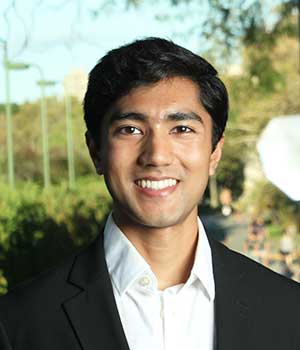
Shaun Datta is a senior studying Physics, Mathematics, and Computer Science at MIT.
